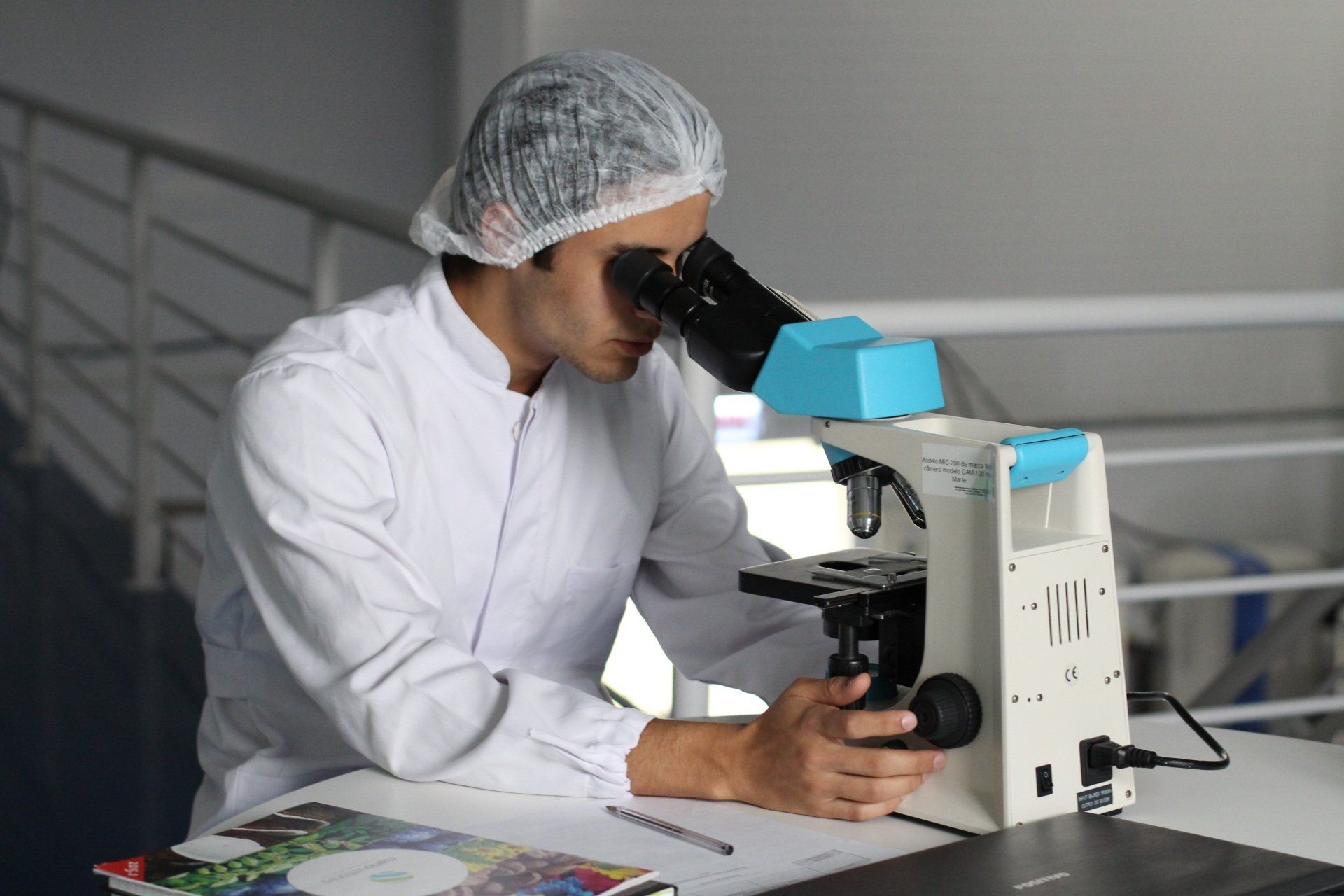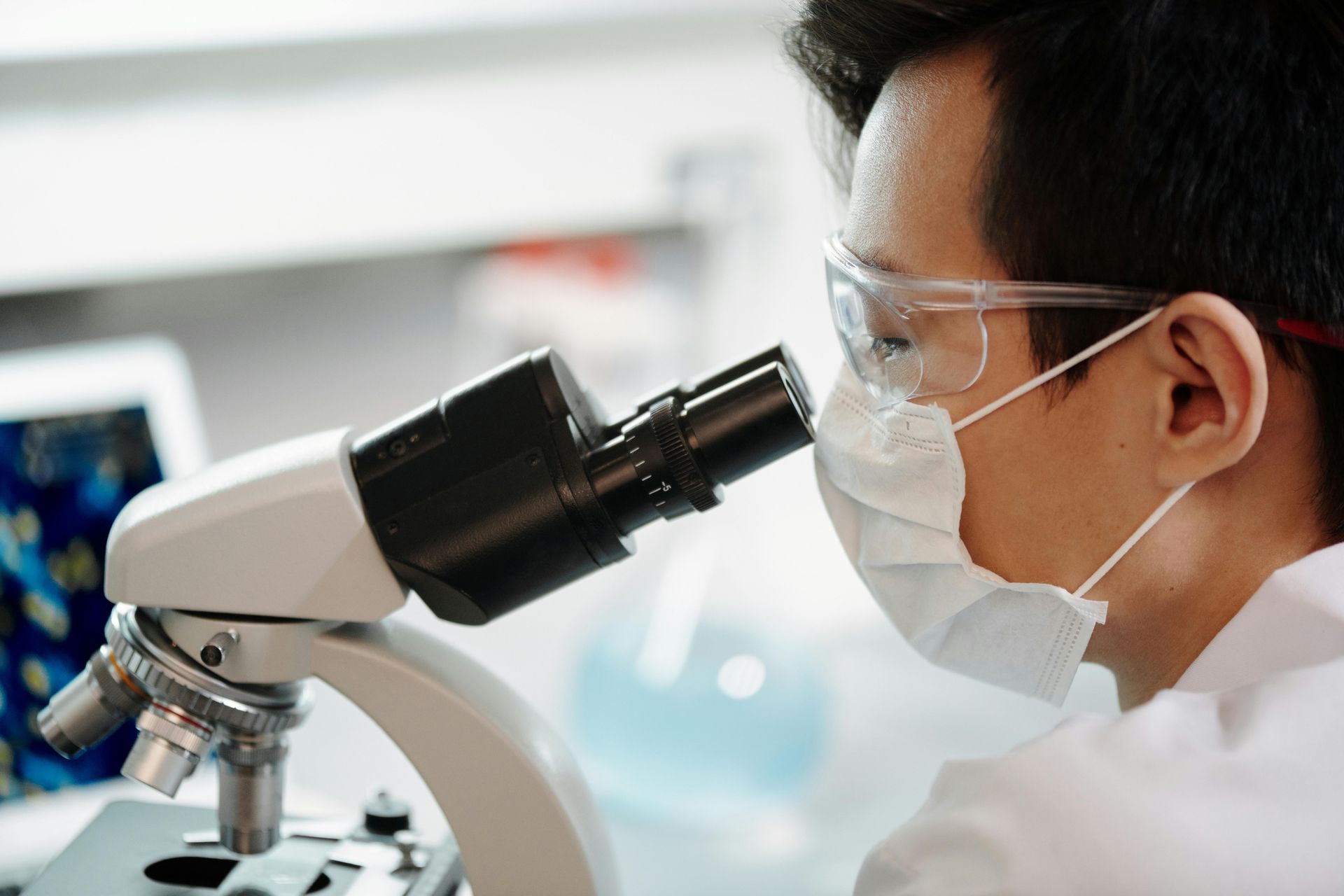Understanding Key Certifications in the Pharmaceutical and Medical Fields
Certifications in the pharmaceutical and medical fields are crucial in maintaining high quality, efficacy, and safety standards in healthcare products and services. Otherwise, there may be too much variance to provide consistent patient healthcare.
Specialized certifications validate the expertise and knowledge of professionals, ensuring they adhere to industry regulations and best practices. Additionally, the training programs that prepare trainees for certification impart the necessary knowledge and skills for future careers.
There are several certifications, and understanding the differences between them will help you upskill employees or guide your own career growth.
So, let’s break down the differences and focus on key certifications in the pharmaceutical and medical device fields to help you make an informed decision.

Current Good Manufacturing Practices (cGMP) Certified Professional (GMPCP)
Current Good Manufacturing Practice (GMP) certification indicates that professionals thoroughly understand and are up to date with the regulatory requirements to manufacture pharmaceutical or medical device products.
cGMP standards are designed to minimize the risks involved in pharmaceutical production, especially those that might not be found in the testing of the final products. cGMP covers several aspects of production, from input materials, facilities, equipment, and personnel training. It is also essential for maintaining compliance with the latest regulatory standards, ensuring manufacturers meet current regulations, prepare for future changes, and prioritize a proactive approach to compliance.
cGMP certification demonstrates that the personnel have a strong knowledge of the framework to produce safe and effective products. Certified employees will be ready to reduce contamination risks, mix-ups, and errors to maintain supply chain integrity and public health.
Several careers benefit from cGMP certification, including:
- Quality Assurance Managers: A quality assurance manager supervises key processes and ensures they relate to GMP standards. A GMP certification allows them to implement quality control systems, conduct audits, and coordinate with other departments.
- Quality Control Analysts: A quality control analyst guarantees all products meet quality standards throughout every production stage, from input materials to the end product. These analysts will conduct tests, analyze samples, and verify manufacturing processes to produce consistent and high-quality products.
- Production Supervisors: These managers oversee production schedules, workflows, and personnel to maintain safety and efficiency. Earning a GMP certification helps maintain adherence to GMP regulations throughout the production process.
- Regulatory Affairs Specialists: A regulatory affairs specialist ensures that all operations comply with national and international regulations, including GMP standards. These experts prepare and submit documentation for regulatory approval, stay on top of regulatory changes, and often work directly with regulatory agencies.
- Compliance Officers: Compliance officers monitor and enforce adherence to cGMP regulations and other regulatory requirements that may apply. A compliance officer often conducts regular audits, reviews procedures, and ensures that all activities throughout the operation comply with regulatory standards.
- Manufacturing Technicians: A manufacturing technician operates equipment used in pharmaceutical or medical device manufacturing and needs to comply with cGMP standards throughout daily operations. These experts must follow precise standards when using, maintaining, or troubleshooting issues, making cGMP compliance crucial.
Certified Medical Writing Professional (CMWP)
The Certified Medical Writing Professional (CMWP) is applicable to professionals involved in creating scientific or regulatory documents. A certified professional validates their ability to produce accurate, clear, and concise medical or scientific documentation.
CMWP certification and related training ensures that all medical writers have the expertise to produce high-quality documents that comply with regulatory standards. Having this certification demonstrates credibility and a commitment to professional development.
Careers that may benefit from CMWP certification include:
- Medical Writers: A medical writer may create a wide range of medical documents, including clinical trial reports, scientific publications, or regulatory submissions. A medical writer must know how to comply with regulatory standards throughout document creation, ensuring all information is accurate and ready for regulatory review.
- Clinical Research Associates: A clinical research associate prepares and reviews study-related documents and must ensure compliance with clinical standards and regulatory requirements.
- Regulatory Writers: A regulatory writer is a specialized medical writer who focuses on developing documentation for regulatory submissions. These writers need to know how to develop documentation to comply with all applicable regulations. As a result, regulatory writers must meet requirements while also being comprehensive and accurate.
Certified Process Validation Professional (CPVP)
The Certified Process Validation Professional (CPVP) certification focuses on the validation of manufacturing processes within the pharmaceutical industry. This certification and related training ensures professionals have the skills to design, analyze, and validate pharmaceutical processes to meet regulatory requirements.
CPVP is critical for ensuring that manufacturing processes consistently produce products that meet specified quality criteria. This certification helps to identify risks, enhance product quality, and ensure overall regulatory compliance.
There are several careers that can benefit from CPVP certification, such as:
- Process Validation Engineers: Process validation engineers develop and validate manufacturing processes with a focus on ensuring consistent product quality.
- Quality Assurance Specialists: Quality assurance specialists oversee the validation process and ensure compliance with applicable regulatory standards. As a result, they’re able to make sure manufacturing processes maintain the integrity and reliability of the entire operation.
- Validation Scientists: These specialists conduct studies with a focus on validating manufacturing processes and equipment. Their work ensures that all manufacturing activities are scientifically sound and comply with regulatory standards.
Chemistry, Manufacturing & Controls (CMC) Certified Professional (CMCCP)
The Chemistry, Manufacturing & Controls (CMCCP) certification is designed for professionals involved in the development and oversight of the CMC component of pharmaceutical manufacturing. This certification prepares personnel to ensure all products are produced and controlled according to regulated quality standards.
CMC certification ensures that professionals have the knowledge and skills to manage the complex processes involved in developing and manufacturing pharmaceuticals. Additionally, this certification is critical for maintaining product quality, safety, and compliance with applicable regulations.
Several careers can benefit from the training and certification in CMC, such as:
- CMC Managers: CMC managers oversee the entire operation related to the CMC process, focusing on compliance with regulatory requirements throughout the operation. This essential role is crucial for the successful development of pharmaceutical products.
- Regulatory Affairs Professionals: CMC documentation must meet regulatory requirements, which is the focus of a regulatory affairs professional. These specialists prepare, review, and submit regulatory documents, making it critical for regulatory affairs professionals to thoroughly understand CMC guidelines.
- Product Development Scientists: This specialty focuses on developing and optimizing manufacturing for new pharmaceutical products. A product development scientist researches, designs, and scales processes from the lab to full-scale production.
Certified Medical Device Compliance Professional (CMDCP)
The Certified Medical Device Compliance Professional (CMDCP) certification is designed for professionals developing medical devices that must comply with regulatory standards. The certification demonstrates knowledge and expertise in navigating the complex regulatory landscape of certified medical device manufacturing.
CMDCP certification ensures that employees fully understand which regulatory requirements apply to their medical devices and how to comply, a vital aspect of product safety and effectiveness. Earning this certification ensures professionals can stay current with regulatory changes and best practices in the medical device industry.
Careers that would benefit from getting a medical device compliance certificate include the following:
- Medical Device Compliance Officers: Compliance officers make sure medical devices comply with relevant regulations. These officers will conduct audits, review documentation, and implement compliance programs.
- Regulatory Affairs Specialists: Regulatory affairs specialists for medical devices prepare and submit documentation required for regulatory approval.
- Quality Assurance Managers: A quality assurance manager in medical device manufacturing manages key processes and must ensure they abide by regulatory requirements and other quality standards.
Become Certified to Advance Your Life Science Career Today
Certifications in the pharmaceutical industry and medical fields are critical for product quality, safety, and regulatory compliance. Each of these certifications validates the expertise of professionals in several fields throughout pharmaceutical and medical device manufacturing.
The right certification helps professionals advance their careers, creating new opportunities for professional growth and development. Anyone involved in medical writing, regulatory compliance, quality assurance, and manufacturing will benefit from earning certifications that demonstrate their expertise.
Staying competitive in this industry requires ongoing education, whether changing fields, staying up on the latest developments, or looking to move into management. Earning the right certification helps you remain competitive and demonstrates your commitment to ensuring safe, effective, and high-quality pharmaceutical and medical devices.
CfPIE is a leading provider of life sciences training, and we can prepare you to begin or advance your career in the industry. Our courses are led by instructors with real-world experience and focus on imparting the practical knowledge and skills to excel in your chosen field.
Are you ready to earn the right certification to advance your career?
Explore CfPIE’s courses today to take your next steps.
Blog Categories
Stay Informed
Have Questions?
You will be able to find answers to most frequently asked questions here
Since 2001 CfPIE has
Check Out Our Life Science Training Courses.
Need help finding the right life sciences training courses? We can help you make the right choice based on your company's needs.
- AMDE, PK/TK & Drug Metabolism in Drug Discovery and Development
- Advanced Topics in Biostatistics for Non-Statisticians
- Analytical Chemistry Principles for Pharmaceutical Scientists
- Analytical Method Validation for Biologics, Biopharmaceuticals and Other Therapeutic Products
- Aseptic Processing in the Manufacture of Biotech and Pharmaceutical Products
- Auditing and Qualifying Suppliers and Vendors
- Best Practices for an Effective Cleaning Validation Program
- Biostatistics for Non-Statisticians
- CMC Regulatory Compliance Strategy for Cell & Gene Therapy Medicines
- CMC Regulatory Compliance Strategy for Recombinant Proteins, Monoclonal Antibodies, & Biosimilars
- Change Control - GMP Requirements and FDA Enforcement
- Cleanroom Fundamentals - Regulation, Science, Design, Practice, Operation & Management
- Clinical Document Management: A Trial-by-Trial Compliance Approach
- Clinical Trial Project Management, Phase 1-4 Best Practices
- Comprehensive Overview of FDA Regulatory Compliance for Drug and Biotech Products
- Computer System Validation
- CRO, CDMO and Non-Clinical Vendor Management Fundamentals
- Development and Validation of Bioanalytical Assays for Biologics: Quantification (PK) and Immunogenicity Assays
- Effective Document Management for Pharma, Biotech & Medical Device
- Effective Internal and External Quality Assurance Auditing for FDA Regulated Industries
- Ethics in Research - Values for Responsible Conduct of Research
- European Regulatory Procedures - EMA & National Requirements
- FDA Inspections - What Regulators Expect and How to Prepare
- GCP Audits - Best Practices for Ensuring Compliance & Detecting Fraud and Misconduct in Clinical Trials
- GMP Training for the QC Laboratory
- Good Clinical Practices (GCP) & Risk Based Monitoring - Understanding and Implementing Current Global Requirements
- Good Laboratory Practice (GLP) for Nonclinical Laboratory Studies
- Good Manufacturing Practices Training | GMP Course
- Human Error Prevention (HEP) - Risk Factors and Strategies
- Implementing and FDA Compliant Stability Program
- Integration of Risk Management Principles and Activities into the Pharmaceutical Quality System
- Intro to Medical Device Submission - 510(s)s, PMAs & Exemptions
- Introduction to Medical Combination Products
- Introduction to Statistical Analysis of Laboratory Data
- Introduction to Vaccines - CMC Regulatory and Quality Aspects
- Laboratory Equipment Validation and Qualification
- Lyophilization Technology - Application of Scientific Principles
- Marketing & Advertising of Pharmaceutical & Medical Devices
- Medical Device Process Validation Training for Professionals
- Medical Devices: Developing Effective Post Market Surveillance and Compliant Handling Systems
- Molecular Biology Techniques - Applications in the Biotechnology and Pharmaceutical Industries
- OTC Drug and Personal Care Product GMP & FDA Regulation
- Oncology Drug Development Course - A Comprehensive Overview
- Overview of FDA Regulatory Compliance for Medical Devices
- Overview of the New EU Medical Devices Regulations: MDR, IVDR, CE Mark and Compliance, QMS Fundamentals
- Pharmaceutical Root Cause Analysis of Failures & Deviations - Developing an Effective CAPA Strategy
- Preparation of FDA Submissions and Communicating with the FDA
- Preparing the CMC Section for NDAs/INDs/CTDs
- Process Validation for Drugs and Biologics
- QbD - Product & Process Optimization using Design of Experiments
- Quality Assurance/Quality Control for Biologics and Biopharmaceuticals
- RNA Biotechnology - An Introductory Course
- Specifications for APIs & Pharmaceutical Drug Products
- Technical Writing for Pharma, Biotech and Med Devices
- The Drug Development Process from Concept to Market
- US Medical Device & Quality Systems Regulations - Design Controls & Validation
- Writing Effective SOP and Other Process Documents
ABOUT US
The Center for Professional Innovation and Education (CfPIE) provides technical training for Pharmaceutical, Biotech, Medical Device and Skin/Cosmetics professionals. CfPIE offers more than 350 class sessions annually across 80 course titles in multiple formats, such as classroom, on-site, and certification programs.
USEFUL LINKS
STAY INFORMED
Your privacy and trust are important to us. We collect your information only for operational and advisory purposes. We do not and will not sell your private information to a 3rd party. By agreeing to this policy, you are giving us permission to contact you about our services and courses.
All Rights Reserved | CfPIE Inc. | Our courses and materials are copyrighted by CfPIE, Inc. and may not be used or reproduced without the written permission of CfPIE, Inc. management. | In partnership with CCC


